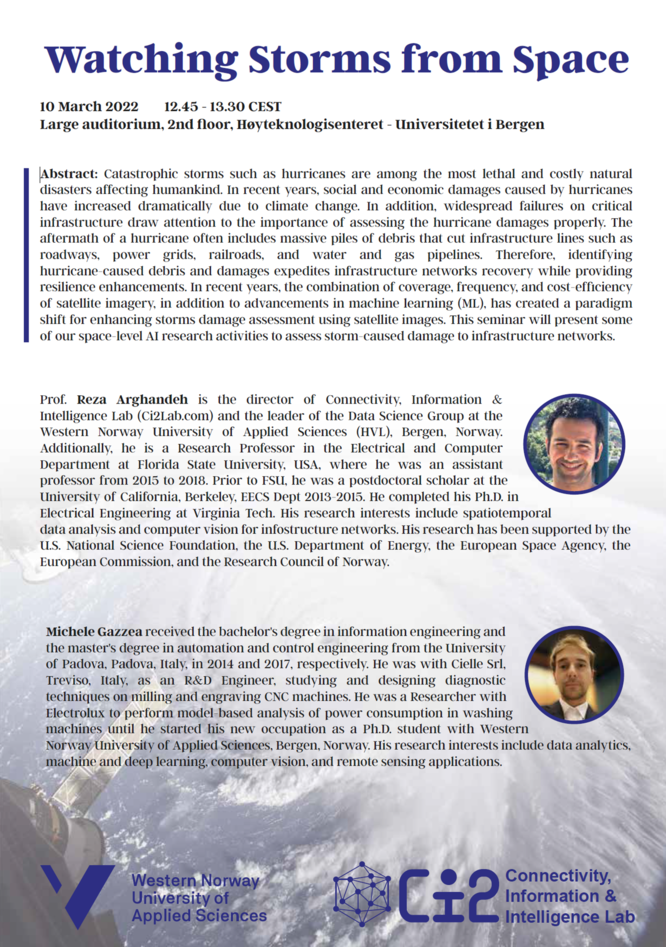Watching Storms from Space
This seminar will present some of the speakers' space-level AI research activities to assess storm-caused damage to infrastructure networks.

Hovedinnhold
Abstract: Catastrophic storms such as hurricanes are among the most lethal and costly naturaldisasters affecting humankind. In recent years, social and economic damages caused by hurricanes have increased dramatically due to climate change. In addition, widespread failures on critical infrastructure draw attention to the importance of assessing the hurricane damages properly. The aftermath of a hurricane often includes massive piles of debris that cut infrastructure lines such as roadways, power grids, railroads, and water and gas pipelines. Therefore, identifying hurricane-caused debris and damages expedites infrastructure networks recovery while providing resilience enhancements. In recent years, the combination of coverage, frequency, and cost-efficiency of satellite imagery, in addition to advancements in machine learning (ML), has created a paradigm shift for enhancing storms damage assessment using satellite images. This seminar will present some of our space-level AI research activities to assess storm-caused damage to infrastructure networks.
Prof. Reza Arghandeh is the director of Connectivity, Information & Intelligence Lab (Ci2Lab.com) and the leader of the Data Science Group at the Western Norway University of Applied Sciences (HVL), Bergen, Norway. Additionally, he is a Research Professor in the Electrical and Computer Department at Florida State University, USA, where he was an assistant professor from 2015 to 2018. Prior to FSU, he was a postdoctoral scholar at the University of California, Berkeley, EECS Dept 2013-2015. He completed his Ph.D. in Electrical Engineering at Virginia Tech. His research interests include spatiotemporal data analysis and computer vision for infostructure networks. His research has been supported by the U.S. National Science Foundation, the U.S. Department of Energy, the European Space Agency, the European Commission, and the Research Council of Norway.
Michele Gazzea received the bachelor's degree in information engineering and the master's degree in automation and control engineering from the University of Padova, Padova, Italy, in 2014 and 2017, respectively. He was with Cielle Srl,Treviso, Italy, as an R&D Engineer, studying and designing diagnostic techniques on milling and engraving CNC machines. He was a Researcher with Electrolux to perform model-based analysis of power consumption in washing machines until he started his new occupation as a Ph.D. student with Western Norway University of Applied Sciences, Bergen, Norway. His research interests include data analytics, machine and deep learning, computer vision, and remote sensing applications.
